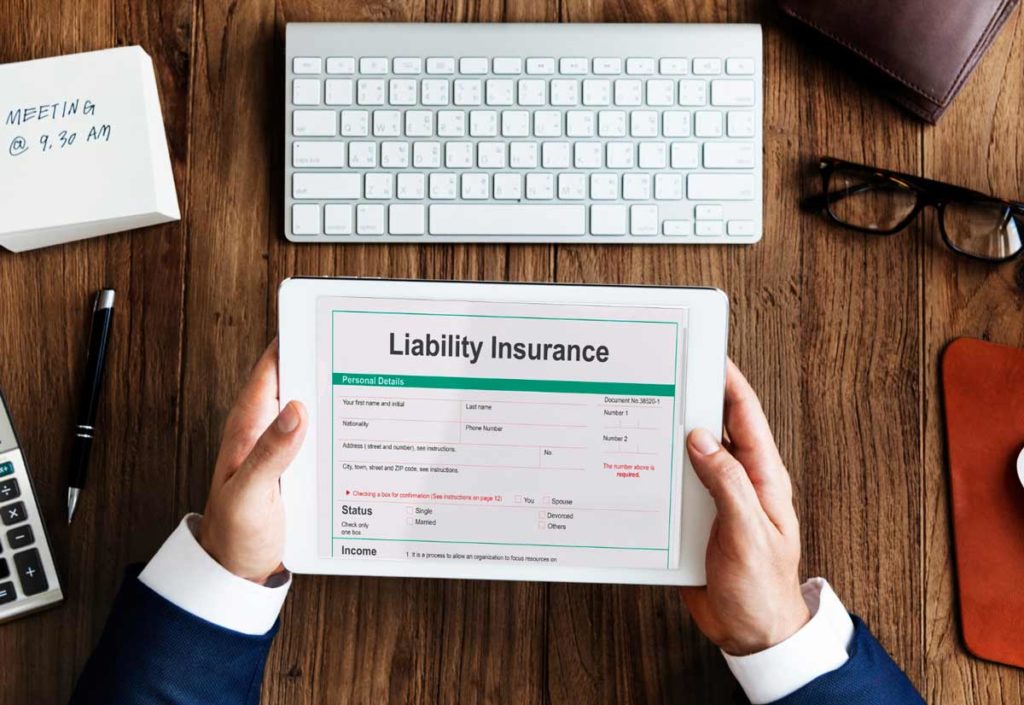Continuing our single-family renters’ insurance blog, now let’s talk about commercial / multi-family renters’ insurance!
The goal here is to give you a high-level understanding of insurance for a multi-family or commercial property to better help you make decisions regarding managing your risk as investor.
While I am a licensed California P&C Insurance agent, and I have written hundreds of policies for real estate investment, it is important to highlight that I am not your insurance agent. I don’t know anything about your needs or your property or your options, and as such, please use this only as a reference; do not make any changes without consulting your own insurance agent.
What Is Commercial Rental Insurance Coverage?
I think it is best to start by looking at “what is commercial insurance coverage? Moreover, what does it apply to? It is quite common for an investor with residential apartment buildings to be a bit confused the first time they see a commercial insurance policy.
The terminology/translation from insurance to real estate takes a bit of practice to get used to.
Basically, a commercial insurance policy is required on any residential building, of 4-8 units or more depending on the carrier. Generally, as well, a commercial policy will apply to any commercial building 1 unit or up (except for possibly a commercial condo).
In general, the insurance terminology matches the lending requirements/language pretty well. Meaning, if you would need a commercial loan, rather than a personal loan, to buy the property, you will likely need commercial insurance to insure it.
Ultimately, an insurance carrier requires a commercial policy when your portfolio hits the size that really it is “a business” now instead of a hobby or passive job. As you can imagine, by 8 units, it really is a job for most people, even if it is only part-time.
I will touch on it later, but that is why some of the coverage in these commercial policies feels a bit misaligned to the needs of a real-estate investor, and more like what you would expect for a brick-and-mortar business owner.
Now, past the clumsy definitions, what makes up a commercial insurance policy?
What Does a Commercial Insurance Policy Cover?
Like a Landlord or Dwelling Fire Policy (check out our part one on real estate investment insurance), commercial insurance is comprised primarily of 2 categories:
- Property Coverage
- Liability Coverage
We go into further detail for these terms in the first blog, so make sure you read it to fully understand what we’re talking about!
1. Property Coverage

1. Dwelling coverage:
The key part of property coverage; fundamentally the amount coverage you have if you suffer a total loss (i.e., your building burns down). This is calculated by looking at the size of your building, using a cost estimator to determine the replacement cost/square feet. So, if your building is 3000 square feet, ask yourself how much it would cost to rebuild — if it is $200/square feet to rebuild your building, that would mean you want $600,000 in coverage. If it was $500/square feet to rebuild your 3000 square feet building, you would want $1.5m in coverage. Your insurance agent can help you determine this number, but when in doubt, air on the side of too much. There is almost no cost difference between $600,000 and $650,000 in coverage, but your insurance company may charge a penalty if you are under-insured at the time of filing a claim.
2. Additional/Optional Coverages:
1. Sewer Back-Up: This is often an included coverage in commercial policies. The last thing you want is to have a sewage back-up and pay for it out of pocket. Insurance companies view wastewwater and clean water separately, so if you only have coverage for leaks, confirm this is for both clean and dirty water leaks/back-ups.
2. Boiler Coverage: This is a name back from the old days — mentally substitute “Boiler” with “Central System.” This coverage is insuring the forced air unit, the AC, sump pump… et cetera. As you can probably imagine, those are important, and expensive, systems. It’s definitely best to insure them. I highly recommend you have this coverage; ask your insurance agent and read your policy to confirm.
3. Loss of Rent: This is pretty much a guarantee in any commercial landlord coverage, but you want to make sure. If a covered loss occurs and you need to displace your tenants or they are not able to pay, you want to be able to still earn your expected income. What I will say is that you want to confirm your policy has it and how much coverage you have. Generally, you will get 100% for a certain period of time (most frequently 6 or 12 months). You want to make sure that those parameters make sense for you and your future needs.
4. Other structures: This is also basically guaranteed in the policy. It is normally a percentage of your dwelling value, so you want to confirm that the coverage is adequate for your other structure. For example, imagine you had an 8-unit apartment building with replacement cost dwelling coverage of $600,000; your Other Structures Coverage is generally 65% of that number, or $400,000. Make sure that it covers all your other structures — think detached garages, sheds, pool houses, etc. If they all needed to be rebuilt from scratch at once, is the $400,000 enough? Almost always it is, but you want to be cognizant nonetheless in case in your specific scenario it is not.
5. Specialty/Package Coverages: As mentioned above, one of the features of commercial landlord policies is often the availability of package options — these things include items like valuable papers, trees/shrubs, signage insurance. While these may make sense for your specific situation and you should always read through the coverages, for most cost-minded investors, these coverages don’t make a lot of sense. However, read through them and decide for yourself.
2. Liability Coverage

1. Liability is fundamentally split between 2 categories:
1. “Slip and Fall i.e., Personal Injury Coverage, which is basically protecting you from the risk of someone getting hurt at your property (and then suing you).
2. Property liability — the less well-known sibling, which provides coverage in the event that a covered loss originates in your unit and damages a nearby property. For instance, a bathtub leak in your condo that damages the condo below — that is Property Liability coverage.
2. How much liability coverage should you have?
1. For a typical commercial policy, liability coverage starts at $1 million. It will be up to you and likely the size/value of the building to best determine the amount of coverage. Often you can increase your coverage to $2 million on the base policy, but you will need an umbrella policy to increase the amount of liability coverage beyond $2 million.
2. Another consideration — under many commercial landlord policies, you can combine your portfolio’s liability coverage. Imagine you own three 6-unit apartment buildings; instead of having $1 million in liability per building, you carry a single shared $2 million in liability coverage shared between the three buildings. This saves you money, because while you have less total coverage, it actually increases your protection in the event of any single event at any property. The thinking is that since a catastrophic liability event is so unlikely (what are the chances someone slips and falls at two of your 3 properties at the same time?), you and the insurance company get to win — you get more coverage for a single event no matter where it occurs and spend less money, and they are offering less total coverage.
This is something you should definitely ask your agent about — for a larger portfolio, this can be substantial savings and streamlined coverage.
3. Umbrella Coverage:
Umbrella coverage, or “Excess Liability Coverage,” is liability beyond your existing protections. We covered this extensively in our prior blog. Check it out!
4. Earthquake and Flood Insurance for Commercial Rent
In our prior insurance blog, we talked about earthquake and flood insurance for rental properties, and they’re not any different for commercial insurance.
Conclusion
Obviously, insurance is complex. We have not talked about claims, carrier ratings, detailed coverage types or other topics. Yet there is already over words here to hopefully offer a little guidance in what to ask about and keep your eyes open for.
One final recommendation: Over the course of working with several hundred clients and selling over 1000 policies in my pre-property management career as an insurance agent, only 1 time did I have any client actually (to my knowledge) read their policy start to finish.
It is often in the hundreds of pages (almost always at least 60-80 pages), and not a page turner. However, it is the document that may be one of the most important you ever purchase.
Read it. You can skim a lot of it — there are pages and pages of disclosures and other stuff. But, for the policy meat — covered losses, the “fine print,” — you want to see what’s in there.
Not only that, but it will give you a much better sense of the foundations of how insurance actually works.
A lot of people think that an insurance claim is something that can make you rich — damage happens, a lot of money gets thrown around and the owner might be able to get some. For anyone who has filed a claim, that is not how it works.
Insurance exists to indemnify. Or make you whole.
It is enlightening to see what the insurance policy says about how that works, if it cannot be a like for like replacement, what happens, etc.
Hopefully this guidance is useful. While I have pretty well hung up my active insurance practice, so you will need to find another agent for those questions, as always, if we can be of any service in property management, never hesitate to drop us a line.

